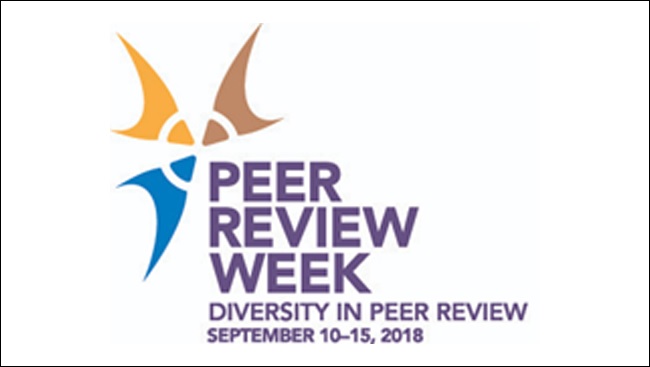
Peer review is a critical process for upholding the scientific integrity in publishing. Each year, Peer Review Week spotlights key issues and engages scientists, communicators, and the public worldwide. In 2018, the theme was diversity and inclusion. Here, read insights on the importance of diversity and inclusion from three neuroscientists who participated in the SfN reviewer mentor match when it was a pilot program.
SfN is joining the global conversation and welcomes you to participate.
The public can join a Q&A in SfN’s Neuronline community with the Editors-in-Chief (EiC) of eNeuro (Christophe Bernard) and JNeurosci (Marina Picciotto). Post your questions or thoughts anytime between September 3-14, and the EiCs will respond after September 14.
Here, read insights on the importance of diversity and inclusion from four neuroscientists who participated in an SfN pilot reviewer mentor match.
From your perspective as an experienced reviewer, what value have you seen from training graduate students and postdocs from diverse backgrounds and scientific paths in the peer review process?
 JNeurosci Reviewer Northwestern University
|
“In academia, we all need to publish papers, or we perish. We all value constructive and timely reviews. Unfortunately, there aren’t enough people doing grant and paper reviews. In fact, most of the reviews are done by a small pool of people. To have more of an equilibrium, we should review at the minimum one, if not 2-3 papers for every paper we submit. For those reasons, we should all invest in training future reviewers with a range of backgrounds and perspectives.
Trainees may not see the paper reviews as important exercises. However, it’s important for them to learn how to critique a paper. First, by learning how to critique others’ work, you learn to be a critic of your own. Second, writing critiques on a regular basis is one way to keep up with scientific writing. And, for trainees who participate in reviewing for JNeurosci, for which I am a reviewer, their names get published.
I’m hopeful about gaining access to young researchers with diverse and complementary knowledge and interests beyond my own lab to groom future reviewers.”
As a trainee, what benefits have you seen from gaining exposure to what it’s like to be a peer reviewer?
 Nour Al-muhtasib, PhD Yale School of Medicine
|
“There’s a common misconception that being exposed to the peer review process is only important for those wishing to pursue a career in academia. However, understanding how the process works is important for anyone who wishes to publish a manuscript.
Although some of us gain exposure to the peer review process from our own mentors, it’s good to see how various researchers conduct the process. It was also great to have the opportunity work with someone whose work I have admired and have cited throughout my thesis. I feel I have gained a mentor and colleague.”
 Carlos Guardia, PhD NIH/NSF
|
“At the early stages of my career, I am directly producing and analyzing my data. Most of the time, I am essentially my own reviewer. Eventually, those results and ideas will be shared by the world. Exchanging my work early and discussing it with peers could potentially help me find red flags in my technique or approach that could save my project. Additionally, when I become a senior researcher, I’ll be responsible for reviewing the results from the scientists working in my lab. However, we don’t necessarily learn how to do that during our PhD or postdoc.
Some mentors don’t host journal clubs in their labs or teach us how to critically read a paper. Even so, we often go over our colleagues’ papers quickly looking for a particular result or method to apply in our own project. Unfortunately, we may forget to think critically about the design of the experiment, word choices used to draw conclusions, the cited literature to present an unbiased discussion of the evidence, or the tools and approaches used to answer the original question proposed by the authors, and even if the paper was about what the title promised.
Learning how to do the ‘B-side of the paper’ is essential to fully understand the publication system and the benefits of peer review. After I gained exposure to the peer review process, I’m now more aware of the importance of having my work constructively criticized by my peers.
Science grows because it’s constantly under review. The sooner you learn the different tools and approaches for reviewing, the better critic of your own science you’ll become, and the better science you’ll offer to the world. Understanding how science works and is discussed amongst ourselves is essential for survival of the discipline. When we generate an observation, replicate (or not) a result, and propose a model, it means nothing until we share and debate it with the world.”
Join the conversation. Share your questions or thoughts in SfN’s Neuronline community until September 10, when the Editors-in-Chief of eNeuro and JNeurosci will respond.


.png?h=1763&w=3125&la=en&hash=B2439C2768576BED6405672E5CD5CF8CB1AA375F)




